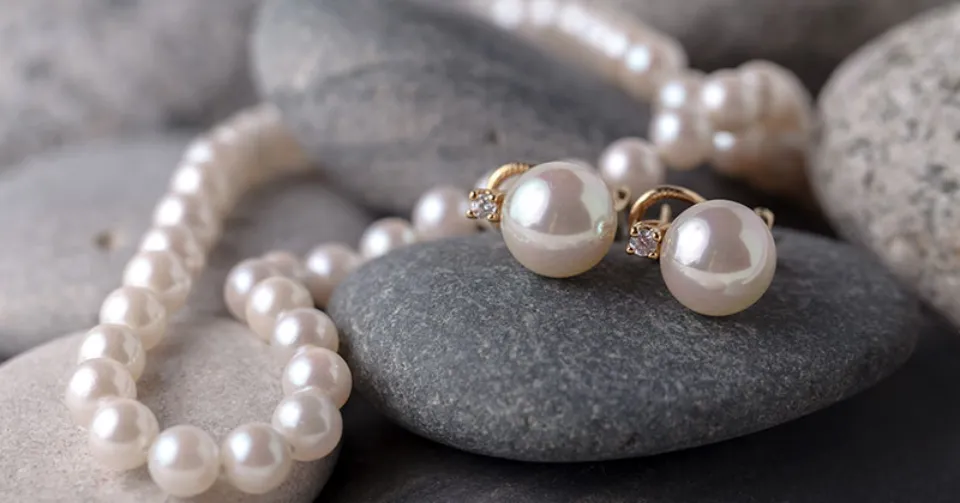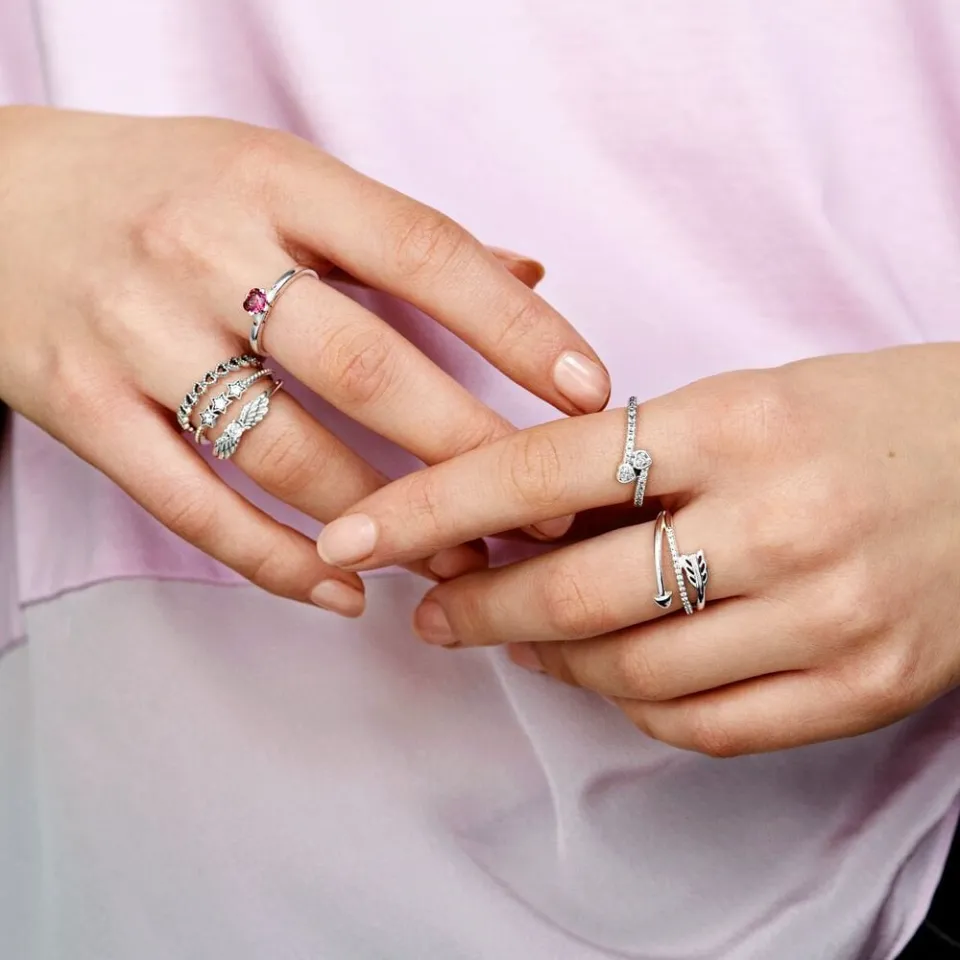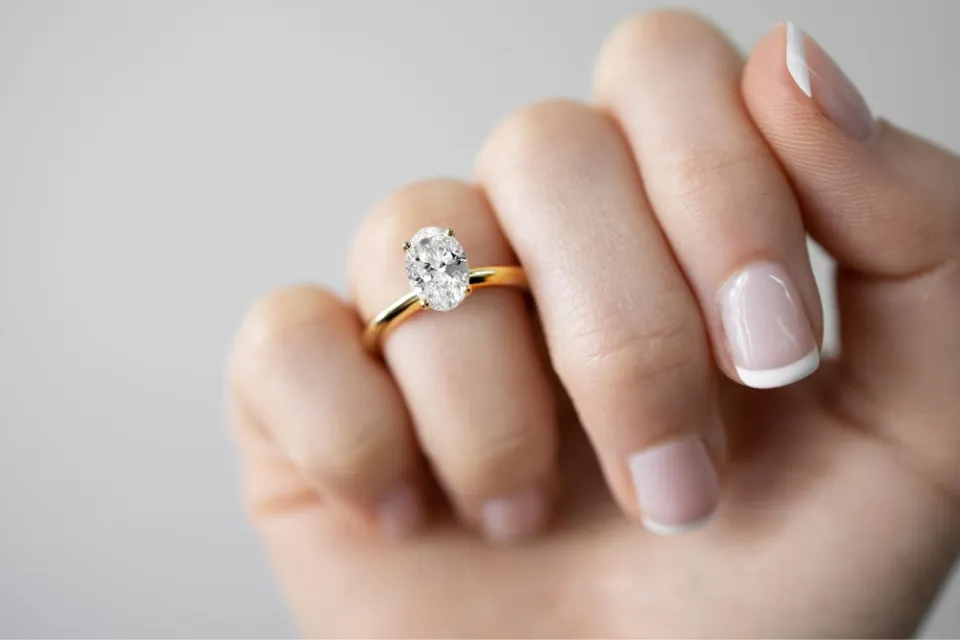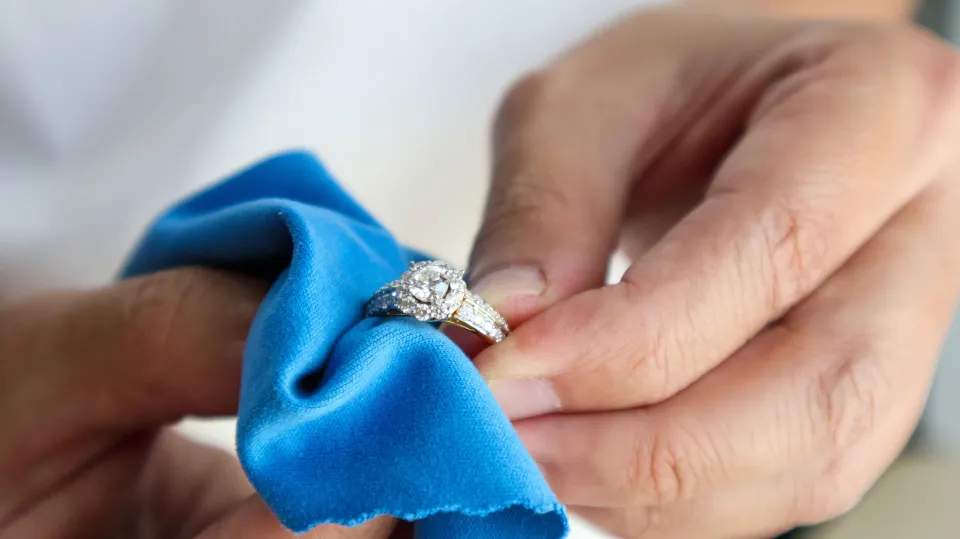To maintain the beauty of pearls, understanding how to clean pearl necklace properly is essential.
Although pearls are naturally soft, this fact cannot be ignored despite the fact that their compact crystalline structure makes them very durable. It’s easy to scratch pearls and simple contact with the skin’s oils every day causes them to deteriorate.
Find out how to take care of your pearl necklace by reading on.
How to Clean Pearl Necklace?
1. Wipe your pearls with a soft cloth after each wear. This will aid in preventing the accumulation of any oils or other substances that may have come into contact with your jewelry throughout the course of the day.
2. Use a damp cloth to clean only when necessary. You can use a soft cleaning cloth dipped in a mixture of lukewarm water and mild dish soap to clean pearls that are clearly stained. A pearl necklace should not be submerged in water as the silk thread will be weakened.
3. Before storing them, let them completely dry out. Once more, this maintains the elasticity of the silk strand.
4. One time a year, take them to the jeweler. Although you should wear your pearls frequently to keep them hydrated, all that body oil doesn’t do the silk thread any favors. Make sure your jeweler performs a once-a-year integrity check on your pearl necklaces and bracelets. They can also clean them thoroughly and safely.
Never use a steam or ultrasonic jewelry cleaner to clean pearls. The pearl’s outer layer will probably be harmed by either of these techniques.
Related Reading: How to Clean a Necklace?
Pearl Maintenance Tips
Pearls are organic gemstones and with care and attention, they can last a lifetime. To maintain their original luster, they must be cleaned.
Regular upkeep is nonetheless crucial.
Store Your Pearls Correctly
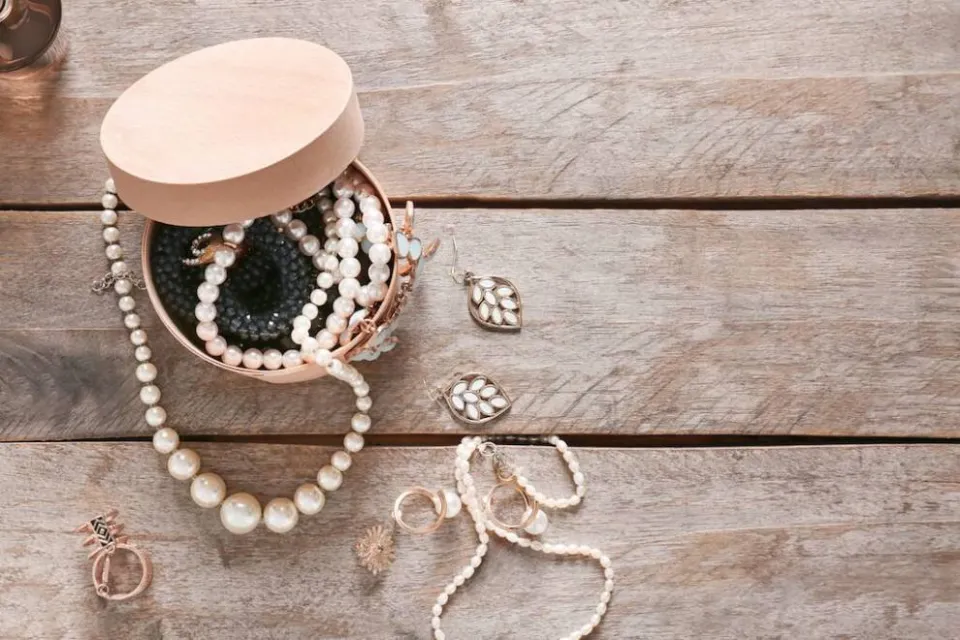
Storing your pearls carefully will prevent them from getting dusty or damaged. These gemstones must be kept flat and never tangled. It’s best to store them separately in a box lined with cloth.
Some jewelers work with velvet, while others use chamois leather or silk. Have in mind that pearls do need to ‘breathe’ so the box shouldn’t be airtight.
Wear Your Pearls Regularly
Pearls are no exception to the rule that jewelry should be worn! Regularly wearing a pearl necklace provides a sublime experience that one cannot possibly forget.
Keeping them moisturized and lustrous is more significant. So, don your pearls and flaunt them to the world!
Keep Your Pearls Away from Chemicals
While it might be obvious that cleaning your pearls with detergents can be dangerous, avoiding the usage of cosmetic products might not.
When wearing pearls, avoid using creams, hairsprays, and perfumes. These items might be mildly acidic and harm mother of pearl (also known as nacre).
Avoid High Temperatures
On a sunny beach day, you should think twice about wearing your favorite jewelry. Pearls are surrounded by thin layers of nacre that is kept together by conchine.
It is an organic substance that dries out over time when exposed to hot temperatures.
As a result, pearls become duller and lose their luster. Because of this, you should keep these gems out of direct sunlight and consider temperature when storing them.
Why Pearls Require Special Care?
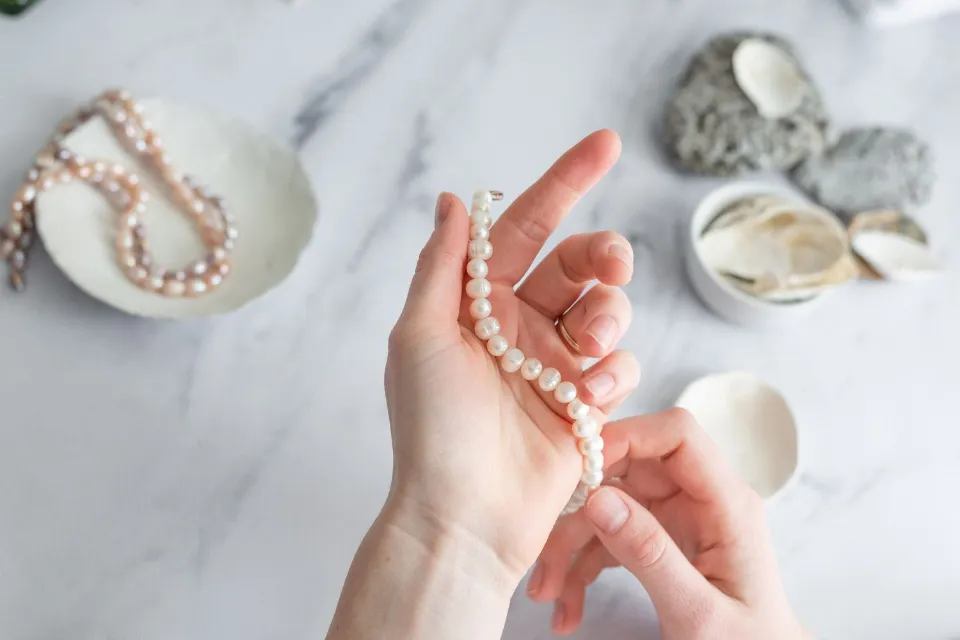
Because of how pearls are formed, they need extra care. Simply put, when a mollusk (clam, oyster, or mussel) is irritated by a particle in its shell, it produces a pearl.
A shiny, iridescent substance is secreted by the mollusk in response, which it uses to encase the particle. The mollusk, the water it inhabits, and time all have an impact on how thick the nacre layer is. Pearls are regarded as delicate and require special handling because of their exterior soft nacre coating.
The beauty of the pearl increases with the thickness of the nacre layers. The quality and durability of the pearl increase with nacre thickness. It develops a brilliant sheen and iridescent rainbow luster. Pearls only last around 200 years before they start to naturally deteriorate, unlike gemstones.
If the nacre of your pearl is thin and fragile, it can easily be chipped off, leaving unsightly gaps, chips, or cracks, particularly if cleaned with harsh chemicals or put in a jewelry cleaner, such as an ultrasonic cleaner.
In the worst case, the pearl can unravel entirely, leaving you with a dull, lifeless bead. Because their coating is much thinner and more delicate than nacre, even fake glass and plastic pearls require special handling.
Read More: How Much Does a Pearl Necklace Cost?
Conclusion: How to Clean Pearl Necklace
Now that you know how to clean pearls, make sure to take care of them properly.
Always keep in mind that they should never be kept in a box; they should always be worn!
FAQs
Do Real Pearls Need to Be Cleaned?
Yes, cleaning your pearls on a regular basis will help to get rid of the oils and impurities that could eventually damage or stain the pearls.
Can Yellowed Pearls Be Cleaned?
If your pearls have turned yellow, use acetone to brighten them or bring back their shine.
Is Vinegar Safe for Pearls?
On your gem, avoid using any harsh cleaning agents. Baking soda and vinegar are examples of such things.

